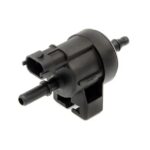Synthetic oil is generally recommended for newer Volkswagen Jettas. Compared to conventional oil, synthetic oil offers superior performance and protection for modern engines. Conventional oil is less chemically stable, oxidizes faster, breaks down more quickly, and is thicker at lower temperatures, hindering smooth engine operation, especially in colder climates.
Synthetic Oil Benefits for Your VW Jetta
Synthetic oil provides several key advantages for your Volkswagen Jetta:
Enhanced Lubrication and Engine Protection
Synthetic oil’s refined molecular structure allows it to effectively lubricate engine components, minimizing friction and preventing overheating. This is crucial for maintaining engine performance and longevity.
Improved Engine Performance in Extreme Temperatures
Unlike conventional oil, synthetic oil maintains its viscosity across a wider temperature range. This ensures optimal lubrication during both cold starts and high-temperature operation, contributing to consistent engine performance. Synthetic oil flows more easily at low temperatures, ensuring quick and thorough lubrication even in winter.
Extended Oil Change Intervals
Synthetic oil’s resistance to degradation and oxidation allows for longer intervals between oil changes. This can save you time and money in the long run, while still providing excellent engine protection. While conventional oil might require changes every 3,000 miles, synthetic oil often allows for intervals of 7,500 miles or even longer, depending on the specific oil and manufacturer recommendations. Always consult your owner’s manual for the recommended oil change interval for your specific Jetta model year.
Consequences of Neglecting Oil Changes in a VW Jetta
Failing to change your Volkswagen Jetta’s oil on schedule can lead to serious engine problems:
Reduced Engine Performance and Efficiency
Over time, oil degrades, accumulating dirt and debris. This contamination can clog engine components, reducing performance and fuel efficiency. Dirty oil can also lead to increased oil consumption and smoky exhaust.
Engine Overheating and Potential Failure
As oil breaks down, it loses its ability to regulate engine temperature. This can cause overheating, potentially leading to catastrophic engine damage or complete failure. Thin, contaminated oil can also slip past seals and rings, leading to oil leaks and further performance issues.
Finding the Right Oil for Your Volkswagen Jetta
Always refer to your owner’s manual for the manufacturer’s recommended oil type and viscosity for your specific Jetta model year. This information is crucial for ensuring optimal engine performance and longevity. Look for oil that meets or exceeds the Volkswagen specifications listed in your manual. Commonly recommended viscosities for Volkswagen Jettas include 5W-30 and 5W-40 synthetic oil.
Failing to use the correct oil type can void your warranty and potentially damage your engine. Regular maintenance, including timely oil changes with the correct oil, is essential for keeping your Volkswagen Jetta running smoothly for years to come.

